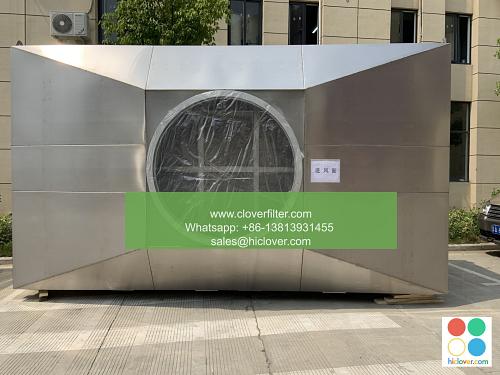The Effectiveness of HEPA Filters in Removing Airborne Particles

HEPA (High Efficiency Particulate Air) filters have become a crucial component in various industries, including air purification systems, ventilation systems, and industrial filtration systems. Their primary function is to remove airborne particles, allergens, and contaminants from the air, providing a cleaner and healthier environment. In this article, we will delve into the effectiveness of HEPA filters in removing airborne particles and explore their various application areas.
How HEPA Filters Work
HEPA filters work by using a complex system of fibers to trap airborne particles as small as 0.3 microns. This includes dust, pollen, mold, bacteria, and viruses. The filters are designed to capture 99.97% of particles that pass through them, making them an essential tool in maintaining indoor air quality.
Application Areas of HEPA Filters
HEPA filters have a wide range of application areas, including:
Residential Air Purification Systems
HEPA filters are commonly used in residential air purification systems to remove allergens and contaminants from the air, providing a healthier environment for occupants.
Commercial Air Purification Systems
In commercial settings, HEPA filters are used to maintain good indoor air quality and prevent the spread of airborne diseases.
Industrial Filtration Systems
HEPA filters are also used in industrial filtration systems to remove hazardous particles and contaminants from the air, protecting workers and equipment.
Medical Facilities
In medical facilities, HEPA filters are used to maintain sterile environments and prevent the spread of airborne infections.
Benefits of Using HEPA Filters
The use of HEPA filters offers several benefits, including:
Improved Indoor Air Quality
HEPA filters can significantly improve indoor air quality by removing airborne particles and contaminants.
Reduced Allergy Symptoms
By removing allergens from the air, HEPA filters can help reduce allergy symptoms and improve overall health and wellbeing.
Increased Energy Efficiency
HEPA filters can also help increase energy efficiency by reducing the load on heating and cooling systems.
Conclusion
In conclusion, HEPA filters are a highly effective solution for removing airborne particles and maintaining good indoor air quality. Their various application areas make them an essential tool in residential, commercial, and industrial settings. By understanding the effectiveness of HEPA filters and their benefits, individuals and organizations can make informed decisions about air purification systems and indoor air quality. You haven’t provided a prompt or question for me to respond to. Please provide more context or information so I can assist you better. What would you like to talk about or ask?

